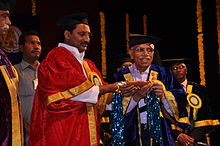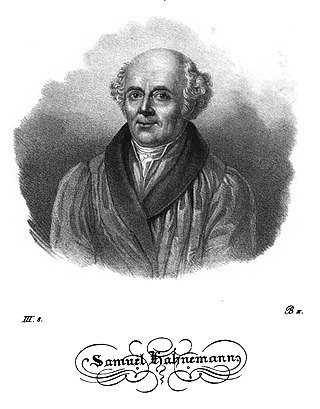
Homeopathy or homoeopathy is a pseudoscientific system of alternative medicine. It was conceived in 1796 by the German physician Samuel Hahnemann. Its practitioners, called homeopaths or homeopathic physicians, believe that a substance that causes symptoms of a disease in healthy people can cure similar symptoms in sick people; this doctrine is called similia similibus curentur, or "like cures like". Homeopathic preparations are termed remedies and are made using homeopathic dilution. In this process, the selected substance is repeatedly diluted until the final product is chemically indistinguishable from the diluent. Often not even a single molecule of the original substance can be expected to remain in the product. Between each dilution homeopaths may hit and/or shake the product, claiming this makes the diluent "remember" the original substance after its removal. Practitioners claim that such preparations, upon oral intake, can treat or cure disease.
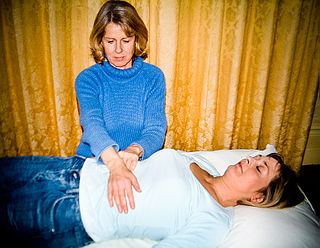
Reiki is a pseudoscientific form of energy healing, a type of alternative medicine originating in Japan. Reiki practitioners use a technique called palm healing or hands-on healing through which, according to practitioners, a "universal energy" is transferred through the palms of the practitioner to the client, to encourage emotional or physical healing. It is based on qi ("chi"), which practitioners say is a universal life force, although there is no empirical evidence that such a life force exists.

Stanley Medical College (SMC) is a public medical college located in Chennai, Tamil Nadu, India. Though the original hospital is more than 200 years old, the medical college was formally established on 2 July 1938.

Vulimiri Ramalingaswami was an Indian medical scientist, pathologist and medical writer. His pioneering research on nutrition got him elected to the National Academy of Sciences, Russian Academy of Medical Sciences and the Royal Society of London.
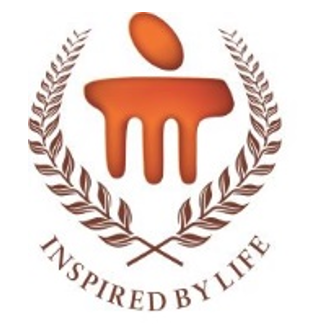
Kasturba Medical College, Manipal and Kasturba Medical College, Mangaluru, together known as KMC, are two private medical colleges in the state of Karnataka, India, established in 1953 and 1955. The colleges are constituent units of Manipal Academy of Higher Education, an Institution of Eminence and deemed university.

Sudha Ragunathan is an Indian Carnatic vocalist, singer and composer. She was conferred the Kalaimamani award by the Government of Tamil Nadu in 1994, Padma Shri (2004) and Padma Bhushan (2015) by the Government of India, and Sangeetha Kalanidhi by Madras Music Academy in 2013.

Energy medicine is a branch of alternative medicine based on a pseudo-scientific belief that healers can channel "healing energy" into patients and effect positive results. The field is defined by shared beliefs and practices relating to mysticism and esotericism in the wider alternative medicine sphere rather than any sort of unified terminology, leading to terms such as energy healing, vibrational medicine, and similar terms being used synonymously. In most cases, no empirically measurable "energy" is involved: the term refers instead to so-called subtle energy. Practitioners may classify their practice as hands-on, hands-off, or distant wherein the patient and healer are in different locations. Many approaches to energy healing exist: for example, “biofield energy healing”, “spiritual healing”, “contact healing”, “distant healing”, therapeutic touch, Reiki,, and Qigong.
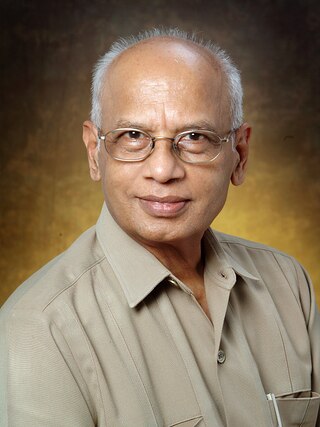
Marthanda Varma Sankaran Valiathan was an Indian cardiac surgeon. He was a president of the Indian National Science Academy and a National Research Professor of the Government of India.
The Ministry of Ayush, a ministry of the Government of India, is responsible for developing education, research and propagation of traditional medicine and alternative medicine systems in India. Ayush is a name devised from the names of the alternative healthcare systems covered by the ministry: ayurveda, yoga and naturopathy, Unani, Siddha, Sowa Rigpa, and homeopathy.
Ramamurthi Balasubramaniam was an Indian neurosurgeon, author, editor, a pioneer in neurosurgery in India and often recognized as the Father of Neurosurgery of India. He set up the Department of Neurosurgery at the Government General Hospital, Chennai in 1950, the Department of Neurosurgery at the Madras Medical College and founded the Institute of Neurology, Madras in the 1970s. He was awarded the Padma Bhushan and the Dhanvantri Award for his contribution to the field of Neurosurgery in India. He is also a recipient of the Lifetime Achievement Award of Madras Neuro Trust.
The Bidhan Chandra Roy Award is an award instituted in 1962 in memory of Dr. B. C. Roy by the Medical Council of India. It is presented by the President of India in New Delhi every year on July 1, National Doctors' Day. It is also the highest honour that can be achieved by a doctor in India.

Ramdas Madhava Pai is an Indian health administrator and the incumbent Chancellor at the Manipal Academy of Higher Education, and chairman of the Manipal Education and Medical Group.
Fr. Gabriel Chiramel CMI was an Indian Syro-Malabar Catholic priest, educationist, zoologist, author and social reformer, known for his services in the fields of education, health and human welfare. He was awarded Padma Bhushan in 2007 by the Government of India for his contribution to education and literature.
Asha Devi Aryanayakam (1901–1972) was an Indian freedom fighter, educationist and gandhian. She was closely connected with Sevagram of Mahatma Gandhi and the Bhoodan movement of Vinoba Bhave.
Mathoor Krishnamurty is an Indian writer, scholar and the director of the Bengaluru centre of the Bharatiya Vidya Bhavan. He has written several articles on Vedas and Upanishads and has published books including Gandhi Upanishad, a biographical account on Mohandas Gandhi, and The World Is One Family: Wisdom of the Vedas. He is a recipient of the 2008 Sir M. Visvesvaraya Shiromani Award of the Sir M. Visvesvaraya Foundation. The Government of India awarded him the fourth highest civilian honour of the Padma Shri, in 2009, for his contributions to Literature and Education.
Shantilal Chhaganlal Sheth (1912–1990) was an Indian pediatrician and the president of several medical institutions including the Medical Council of India, the apex body for matters related to medical administration and education in India. An honorary surgeon commander at the Indian Navy, he served as the honorary physician to the President of India. The Government of India awarded him the third highest civilian honour of the Padma Bhushan, in 1972, for his contributions to medicine.
Shiv Kumar Sarin is an Indian physician; an outstanding hepatologist, gastroenterologist, translational scientist, accomplished researcher, mentor, and a gifted teacher. Under the aegis of Delhi Govt., he set-up the Institute of Liver and Biliary Sciences (ILBS); the largest liver hospital and a deemed Liver University, and a WHO Centre. He is a prolific researcher with an H-index of 116. He has received Shanti Swarup Bhatnagar Prize, The World Academy of Science Prize, and Padma Bhushan in 2007. He served as Chairman Board of Governors of Medical Council of India and shaped the New Medical Education Vision, including NEET and NEXT exams. He is a leader in science and served as the President of the Asian Pacific Association for study of Liver and is currently the President of the National Academy of Medical Sciences (NAMS) of India (2021-2024).
Pratury Trirumala Rao was an Indian pediatrician and a writer of medical and non-fiction literature. He was a professor of pediatrics at the Gandhi Medical College, Hyderabad. He was the author of two books on pediatric medicine in English, The insulin requirements of children with diabetes mellitus maintained in good control and Pediatric Problems in Developing Countries), two books in Telugu Gāndhījītō paricayaṃ and Gadacina Rojulu) and two biographical accounts and. The Government of India awarded him the third highest civilian honour of the Padma Bhushan, in 1988, for his contributions to medical science. He died in 1997.
Sundaram Ramakrishnan or S. Ramakrishnan was an Indian freedom fighter and social activist. He was widely known for his leadership to spread the values of Indian Culture globally as the director-general of the Bharatiya Vidya Bhavan and has been awarded both the Padma Shri and Padma Bhushan by the Government of India for his service to the nation.
The infinitesimally low concentration of homeopathic preparations, which often lack even a single molecule of the diluted substance, has been the basis of questions about the effects of the preparations since the 19th century. Modern advocates of homeopathy have proposed a concept of "water memory", according to which water "remembers" the substances mixed in it, and transmits the effect of those substances when consumed. This concept is inconsistent with the current understanding of matter, and water memory has never been demonstrated to exist, in terms of any detectable effect, biological or otherwise.

